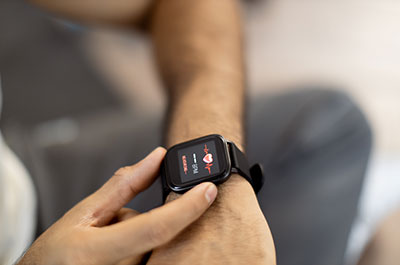It has long been known that eating too much refined sugar isn’t good for us. (Think: juices, soda, pastries, candy…you get the idea.) But can refined sugar actually increase your cancer risk?
“There is a lot of data that shows refined sugar can increase your risk of cancer—not directly, but indirectly—by increasing your weight,” says Geetika Kukreja, M.D., a medical oncologist at Henry Ford Health. “Obesity is a risk factor for many types of cancers, such as breast, endometrial, gastric, colon, rectum, liver, gallbladder, esophagus adenocarcinoma, pancreas, kidney, thyroid and multiple myeloma.
“Eating a lot of refined sugar can also cause insulin resistance, and insulin resistance can lead to obesity (and type 2 diabetes) and increase your risk of cancer. Refined sugar can also cause inflammation in the body, and prolonged inflammation can sometimes lead to an increased risk of cancer.”
What About Artificial Sweeteners—Are They “Better” Than Refined Sugar?
So does that mean you should switch to diet sodas and artificially sweetened juices? Not exactly. While Dr. Kukreja says there isn’t enough evidence to show a direct link between artificial sweeteners and cancer, some animal studies have suggested a link between cancer and artificial sweeteners.
And a European study from March 2022, which studied people who had consumed artificial sweeteners for years, found that aspartame and acesulfame potassium were associated with a small increased risk of cancer. Sucralose, however, wasn’t associated with a higher risk of cancer, and it is one of the widely used sweeteners in the United States.
“This was one isolated study and we need more data to determine the accuracy of these results,” says Dr. Kukreja. “Right now, at today’s time, if someone asks me whether artificial sweeteners directly cause an increased risk of cancer, I can’t say that they do.”
That said, like refined sugar, artificial sweeteners may be indirectly linked to cancer—almost in the same way that refined sugar is linked with cancer. “Studies show that when people who are obese replace sugary beverages with artificially sweetened beverages, their long-term health risks don’t decrease,” says Dr. Kukreja. “Artificial sweeteners can lead to an increased risk of cardiovascular problems, insulin resistance and obesity. So indirectly, I still think artificial sweeteners could be linked to cancer.”
And both refined sugar and artificial sugar can be addictive: the more you consume them, the more you crave them. “Many studies have shown that when we consume sugar or artificial sweeteners, it activates the same areas in our brain that are activated when we take addictive drugs,” says Dr. Kukreja.
Healthy Ways To Curb Your Sugar Cravings
To satisfy sugar cravings, eat whole fruit—specifically berries, says Dr. Kukreja. “Berries are packed with nutrients and have a low glycemic index. That means they release sugar slowly, instead of giving you an immediate sugar high.”
Studies show that a high-protein diet—filled with nuts, seeds and lentils—can keep you fuller longer and suppress your appetite, Dr. Kukreja adds. Eating filling foods will also help prevent blood sugar highs and lows, so you won’t crash and go looking for your next quick sugar fix.
“I also recommend drinking lots of water. Many times, when people think they’re hungry, they’re actually thirsty,” she says. “And engaging in moderate intensity aerobics can help, too. A study showed that 12 weeks of moderate intensity aerobics changed the participants’ cravings: most of their sugar cravings decreased after exercising.”
What If You Have Cancer—Should You Stop Eating Sugar?
There is a myth that sugar feeds cancer cells. Some people who have cancer are worried that their cancer will spread if they eat sugar, so they try eliminating it from their diet. This, however, is completely false.
“I’ve had some patients who think that cancer cells will die off if they stop eating sugar, but this isn’t true,” says Dr. Kukreja. “Not eating sugar won’t selectively starve the cancer cells—and there is no evidence that sugar causes cancer to spread or worsen.”
“If we aren’t eating any carbs, the body starts breaking down muscle and protein because it has to be changed into sugar for the brain to be able to use it. I always advise my patients to eat a diet high in protein and complex carbs,” she says. “If you aren’t eating any carbs or sugar, and you’re undergoing chemotherapy, your nutritional levels could deplete.”
The key is to know the difference between healthy, unrefined carbs and refined carbs (or sugar). Whole wheat bread and pasta, fruit, brown rice—these carbs are healthy for everyone.
The Verdict On Sugar
All in all, there isn’t enough substantial evidence to say that refined sugar directly raises our risk for cancer. But when it comes to our general health and wellbeing, there is plenty of evidence to say that refined sugar isn’t good for us.
“We know that eating a healthy, balanced diet, exercising regularly—and staying away from or limiting refined sugars—is better for us,” says Dr. Kukreja. “That said, if you have any specific questions about your nutritional or lifestyle needs, I recommend reaching out to your physician.”
Make an appointment to talk with your doctor about your cancer risk factors and necessary screenings at henryford.com or 1-800-436-7936. To find a cancer specialist, visit henryford.com/cancer or call 1-888-777-4167.
Geetika Kukreja, M.D., is a medical oncologist at Henry Ford Health. She specializes in hematology oncology and sees patients at Henry Ford Hematology Oncology – Hayes Road and Henry Ford Macomb Hospital in Clinton Township.



